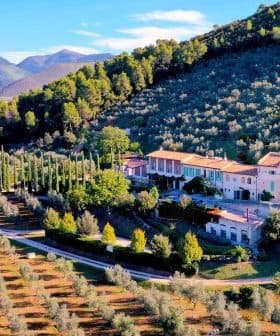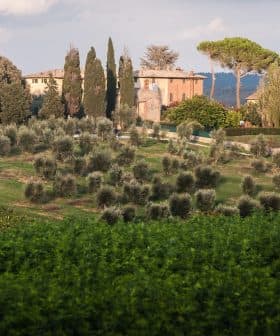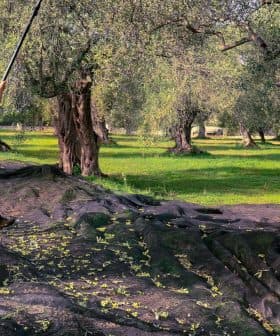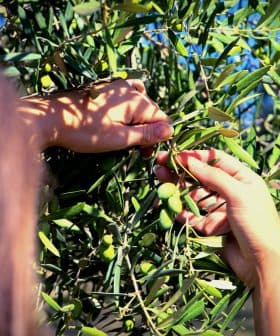Olive Oil Tourism Returns to the Colosseum as Italy Reopens
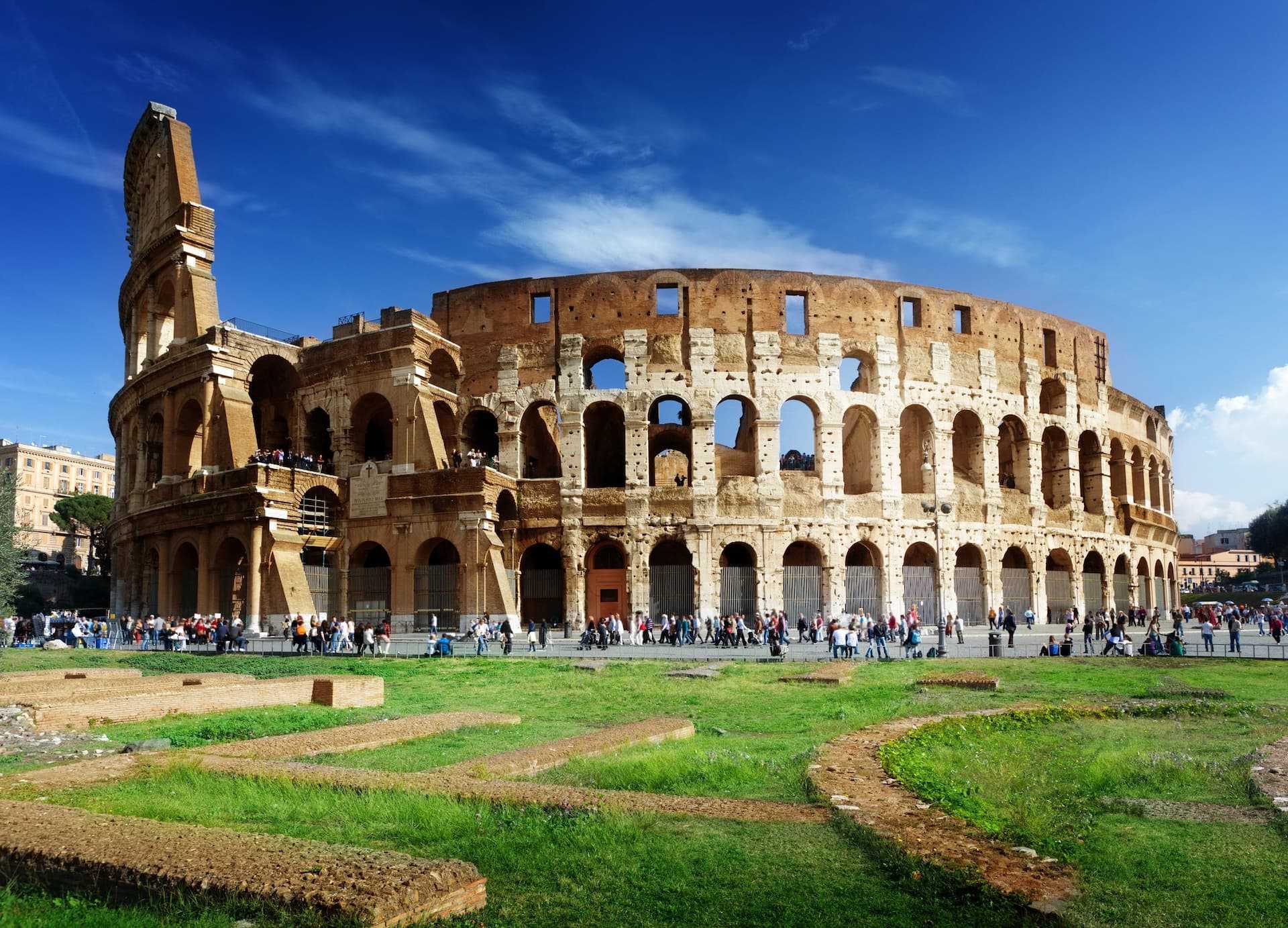
The Colosseum Archeological Park in Rome has opened Barberini Vineyards, where visitors can walk through vines just as ancient Romans did 1,000 years ago. The park also features 189 olive trees, some dating back to the 19th century, in an effort to recover the ancient Roman tradition of agriculture on Palatine Hill. The olive trees, vineyards, and bee-keeping activities aim to showcase the complex relationship between human settlements and vegetation throughout history.
The Colosseum Archeological Park in Rome has announced the opening of its new Barberini Vineyards.
Beginning on May 28, visitors will be able to walk through the vines just as ancient Romans did 1,000 years before.
Olives, grapes, honey and other projects, including the workshops with olive tastings and olive oil classes, are all meant to bear witness to the Ancient Roman culture.
The restoration of the wine-growing tradition on the Palatine Hill, right by the Colosseum, adds to the latest expansion of the olive trees that dot the park and allow local farmers to produce Palatine organic extra virgin olive oil.
The park is currently home to 189 olive trees, some of which were planted in the 19th century and others in more recent times.
See Also:Archaeologists Bring Roman Villa Back to Life in MaltaTogether with the vineyards and the bee-keeping activities, the olive trees are meant to recover and bear witness to the complex relationship developed through the ages on Palatine Hill between humans settlements and vegetation.
“When Ancient Rome’s expansion reached this area, the marshes around the hill were reclaimed, and on the top of it, the richest families began building their villas and planting their orchards,” Gabriella Strano, the landscape architect of the Colosseum Archeological Park, told Olive Oil Times.
“What we are doing now is to investigate and recover that tradition and replant the vegetation that they had here,” she added.
The olive tree is Italians’ natural connection to Ancient Rome when most of the local economy depended on agriculture.
“Pliny the Elder, in his Naturalis Historia, emphasized the essential role that agriculture played for the Ancient Roman people,” Strano said. “For him, the most relevant mission for the Roman citizen was to focus on agriculture, which meant producing olive oil as well as barley, oats, cereals, wine and honey.”
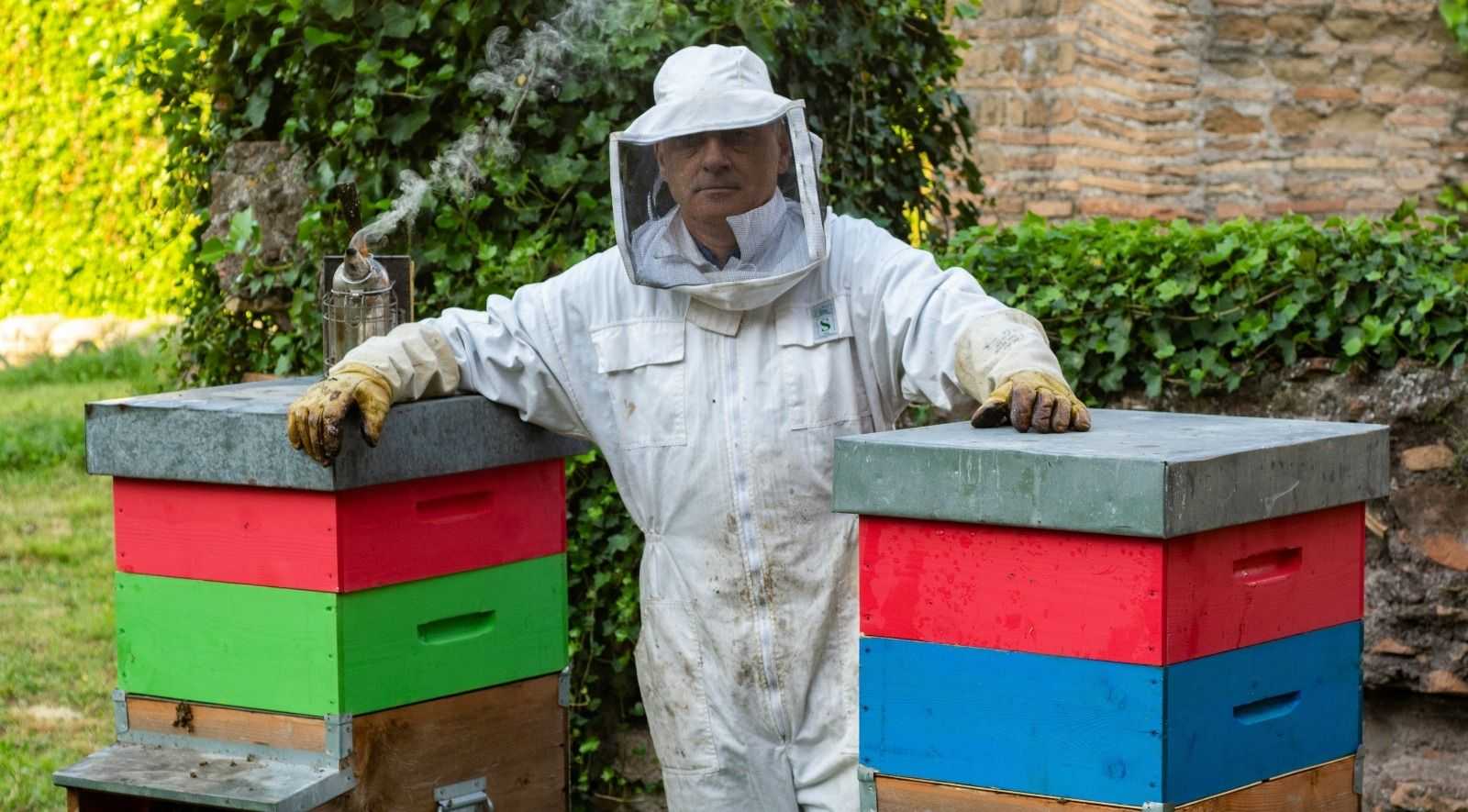
In the long history of the rise and fall of Roman society, through the Dark Ages until modern times, the settlements on Palatine Hill and the vegetation underwent profound changes.
“The new vineyard replicates those that can be seen in planimetry and pictures we have dating back to 16th and 18th centuries,” Strano said. “The area was crowded with grapes; one was found by archeologists even on the top of the Domus Aurea, which was damaged by the roots of the plants.”
“For the vineyard, we chose to plant the Bellone variety because of Pliny’s writings and because it was the wine drank by the emperors who since Octavian Augustus decided to live on the Palatine Hill,” she added.
Along with the olives and honey, local farmers will also harvest and crush the grapes following Ancient Roman growing instructions.
“When we reached an agreement with the farmers association Coldiretti to have them take care of the olive trees, we established that pruning would be done taking into account the landscape goals, not the overall production,” Strano said.
“Harvesting is done by hand,” she added, referring to the similar rules that govern how the farmers transform the local olives into oil.
While dozens of olive trees dot the park or define the boundaries of the archeological excavations sites, some are more specifically related to the hill’s history. This is the case of three new olive trees planted right by the remains of the Temple of Minerva.
“The pine tree that grew there since the 19th century recently died,” Strano said. “It was planted by Giacomo Boni, the supervisor behind the most relevant reshaping and resettling works on the hill.”
“When it was removed, we decided to plant the trees once cherished by Domiziano, the emperor who worshipped the goddess Minerva,” Strano added.
Domiziano, who also lived on the hill as his predecessors did, is credited with finishing the Colosseum in 90 CE.
The idea behind Palatine extra virgin olive oil production is relatively recent, according to Strano. The idea was first proposed to solve the problem caused by the olives when they fell off the trees and onto the pedestrian paths each year.
Advocates of the idea saw it as an opportunity to promote 100-percent Italian olive oil, to set up educational workshops and tasting classes and add a new kind of historical experience for tourists.
“Olives, grapes, honey and other projects, including the workshops with olive tastings and olive oil classes, are all meant to bear witness to the Ancient Roman culture,” Strano said. “In an archeological site, such as this one, culture continues to live.”
Before the Covid-19 pandemic, the Colosseum Archeological Park greeted more than 22,000 visitors each day from all over the world.
“The institution felt the effects of the lockdowns, but we tried to be resilient and took advantage of this time to do the maintenance and develop works that had to be delayed before,” Strano said.
Park management is now optimistically anticipating the relaxation of the emergency measures in Italy and the Covid-19 green-pass within the European Union.
“We are ready to greet all visitors now, to let them explore the park in absolute safety and respect of the sanitary limitations,” Strano said.


